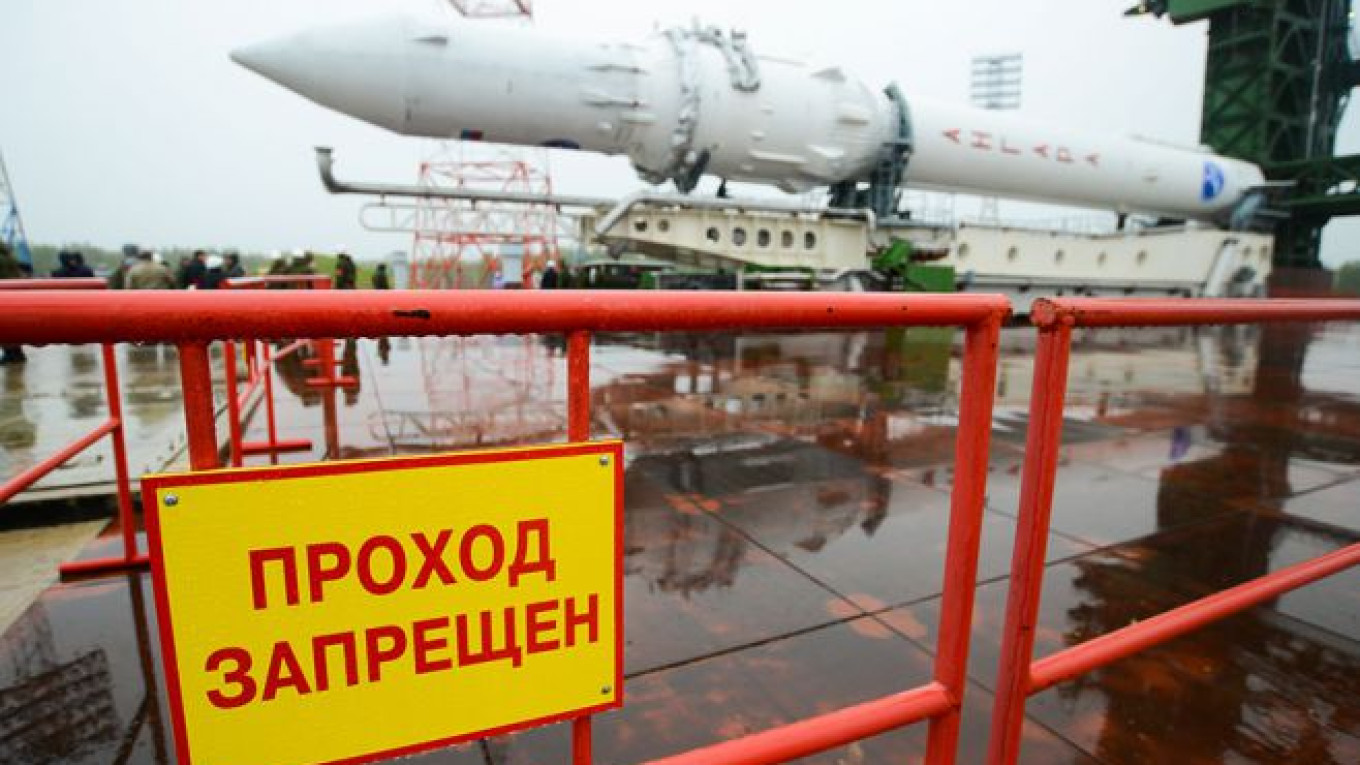Russia is set to launch the first new design of space rocket since the Soviet era on Friday in a launch from its own territory, aiming to break a reliance on the Baikonur cosmodrome in Kazakhstan and foreign suppliers.
More than two decades in the making, the Angara-1.2PP's maiden flight will test Russia's ability to turn around a once-pioneering space industry that is struggling to recover from a brain drain and years of budget curbs.
Work on the Angara began after the break-up of the Soviet Union when Moscow lost the maker of its Zenit and Dnepr rockets as well as the Baikonur launch site, based respectively in the newly independent republics of Ukraine and Kazakhstan.
"This is the first launch vehicle that has been developed and built from scratch in Russia," Igor Lissov, an expert with trade journal Novosti Kosmonovatiki. "Everything else we have is a modernisation of our Soviet legacy."
While Russia continues to use Baikonur under a lease deal with the Kazakh government, Angara will blast off from within its borders at the northern Plesetsk military cosmodrome. It is due to follow a suborbital flight path across Russia's Arctic coastline.
For some industry insiders, the crisis in Moscow's relations with Kiev over its annexation of Crimea and a separatist rebellion in the eastern Ukraine proves Russia's need to produce and launch its rockets domestically.
"We are, unfortunately, not even strong enough to dictate our will to Ukraine so this (project) decision was made already way back in 1993, with an awareness that our former Soviet allies can ditch us at any moment," Lissov said.
The new rocket is a centrepiece of a space industry reform begun by President Vladimir Putin in December that includes building a new launch pad in Russia's Far East.
"Angara's entry into operation will guarantee Russia's access to low-Earth orbit and the country's independence in the field of space exploration," Deputy Prime Minister Dmitry Rogozin told the government daily Rossiskaya Gazeta this month.
A potential commercial rival to Arianespace of France and Californian-based SpaceX, the modular launcher is designed to carry military and civilian payloads of up to 25 tonnes.
Its heavier cousin Angara 5, set for a test launch next year, is to replace Russia's workhorse Proton rocket which has suffered an embarrassing litany of failures.
But both rockets are made by the same builder, the Khrunichev space centre, leading to fears that Angara - named after a Siberian river - will suffer similar troubles.
"There is absolutely no guarantee that Angara, which is built by the same industry, by the same company, by the same people will be immune to these problems," said Anatoly Zak, editor of the industry website Russianspaceweb.
"Twenty years of development is over but we are at the very beginning of the flight testing."
Unlike the Proton, powered by toxic hydrazine fuel, Angara's uses an ecologically cleaner mix of liquid oxygen and kerosene.
Its medium-lift version, Angara-3, is due to complement the Soviet-era Soyuz - currently the only rocket ferrying astronauts to the International Space Station from Baikonur.
Years of strapped budgets when many experts quit the space industry have led to long project delays and ballooning costs from Angara. "It became extremely overpriced," Zak said.
The Angara rockets will probably become commercially competitive only in another decade, he said, if launched from the new cosmodrome Russia plans at Vostochny, closer to the equator, where less energy is needed to carry payloads into geostationary orbit.
See also:
Rocket Carrying Advanced Russian Satellite Malfunctions Shortly After Launch
A Message from The Moscow Times:
Dear readers,
We are facing unprecedented challenges. Russia's Prosecutor General's Office has designated The Moscow Times as an "undesirable" organization, criminalizing our work and putting our staff at risk of prosecution. This follows our earlier unjust labeling as a "foreign agent."
These actions are direct attempts to silence independent journalism in Russia. The authorities claim our work "discredits the decisions of the Russian leadership." We see things differently: we strive to provide accurate, unbiased reporting on Russia.
We, the journalists of The Moscow Times, refuse to be silenced. But to continue our work, we need your help.
Your support, no matter how small, makes a world of difference. If you can, please support us monthly starting from just $2. It's quick to set up, and every contribution makes a significant impact.
By supporting The Moscow Times, you're defending open, independent journalism in the face of repression. Thank you for standing with us.
Remind me later.


